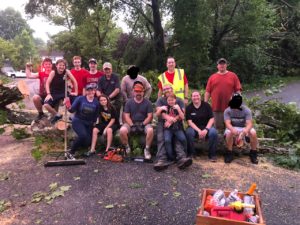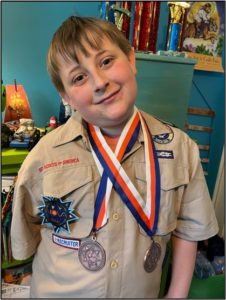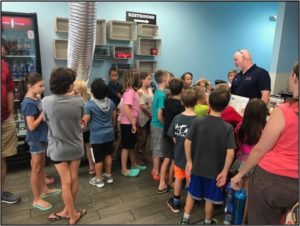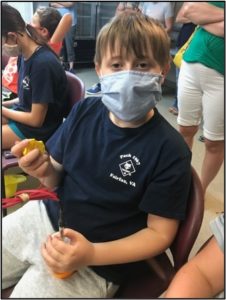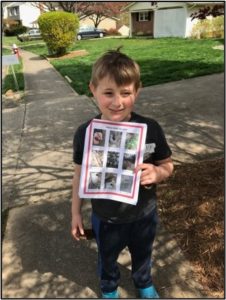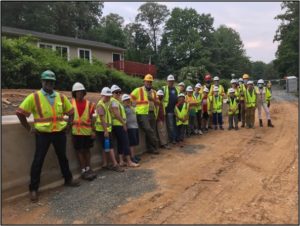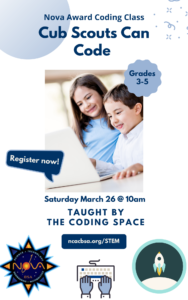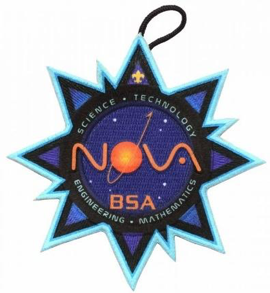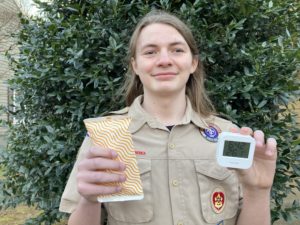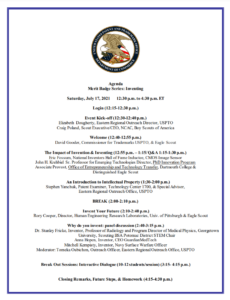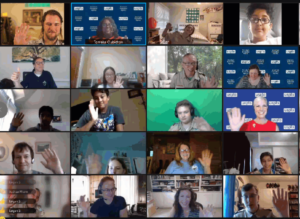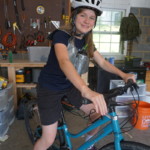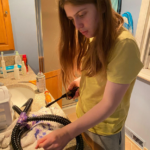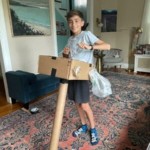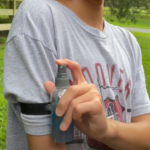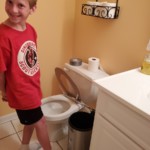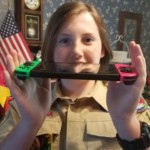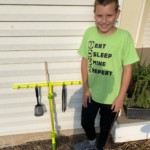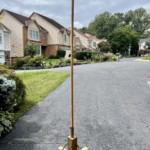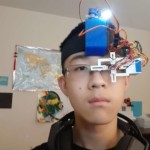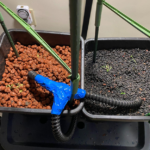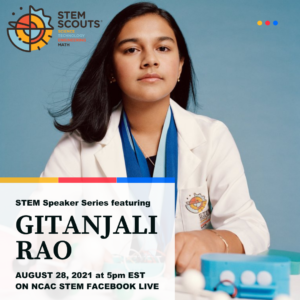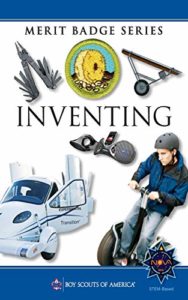Troop 1688, chartered by the American Legion Post 66 in Bowie, MD, was getting ready for their regular weekly meeting Tuesday night, Jul 5. Families had already spent time sheltering due to the tornado warning released by the Emergency Alert System, but after the storm the skies looked good for their outdoor meeting.
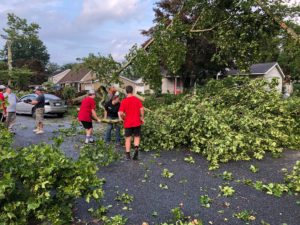 Then the call came through. Assistant Scoutmaster, Bill Schmidt, sent out a request that everyone come to his house. His neighborhood had been hit by a tornado and the community needed help. Every family that was heading to the Legion changed course and went to Mr. Schmidt’s. There they found seven large trees blocking two roads.
Then the call came through. Assistant Scoutmaster, Bill Schmidt, sent out a request that everyone come to his house. His neighborhood had been hit by a tornado and the community needed help. Every family that was heading to the Legion changed course and went to Mr. Schmidt’s. There they found seven large trees blocking two roads.
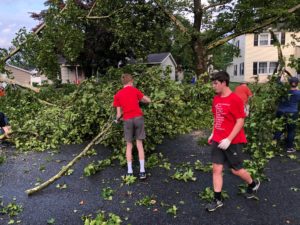
The scouts, their families, and neighbors (both from the street and from Bowie) came together and cleared six of the seven trees. (The last tree needed heavier equipment than a chainsaw and the strength of youth.) 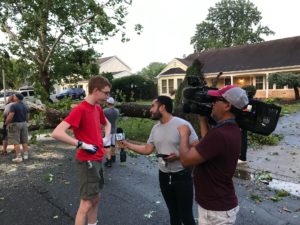 The County Executive came by, saw the work, and gave her thanks.
The County Executive came by, saw the work, and gave her thanks.
Troop 1688’s Assistant Senior Patrol Leader, Nicholas Mocko, was interviewed by WUSA9. Fortunately, no one was injured during the tornado and there was minimal house damage in that area.
Scoutmaster, Mark Zelenka, praised the boys saying how much he appreciated their dedication to the community. It was not the weekly meeting they expected, but the scouts of Troop 1688 went home knowing that they had lived up to the Scout Oath and Law. 